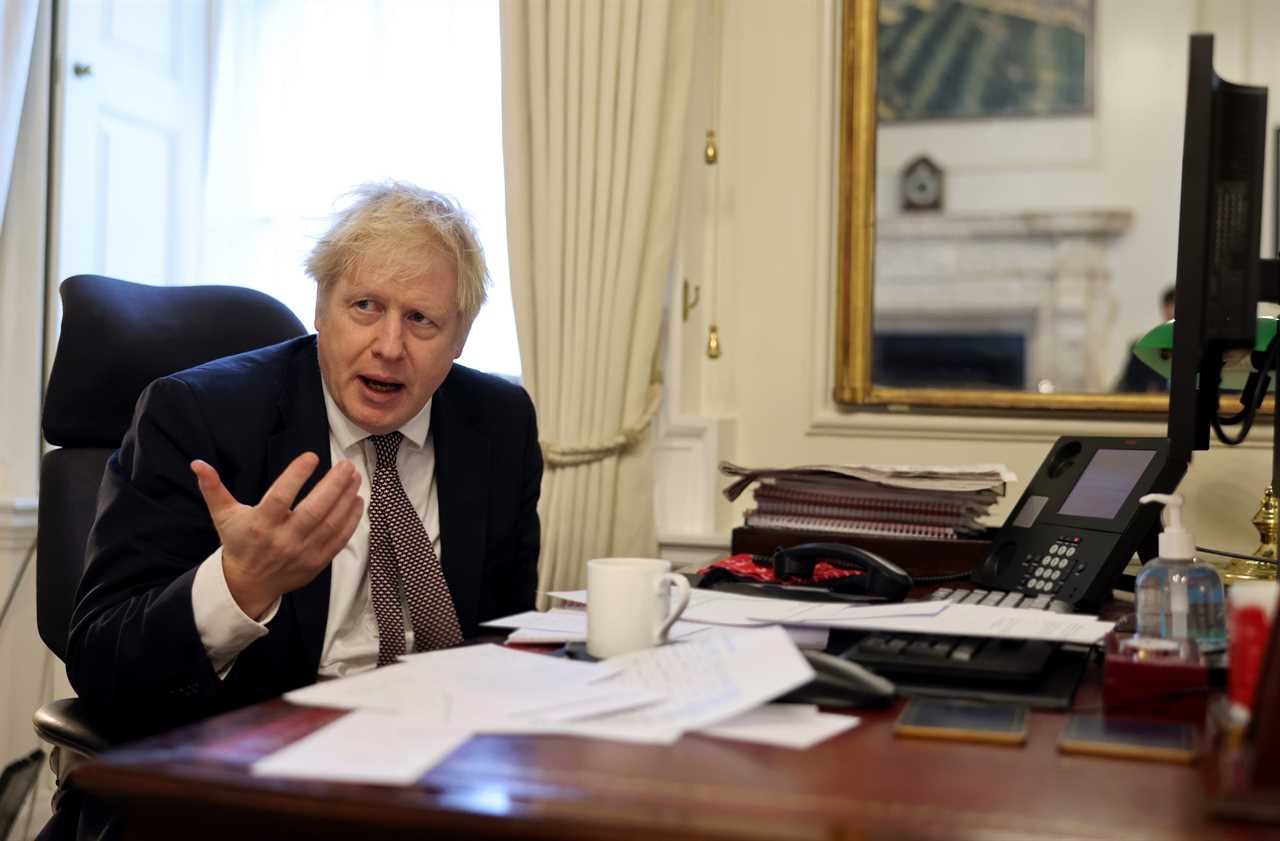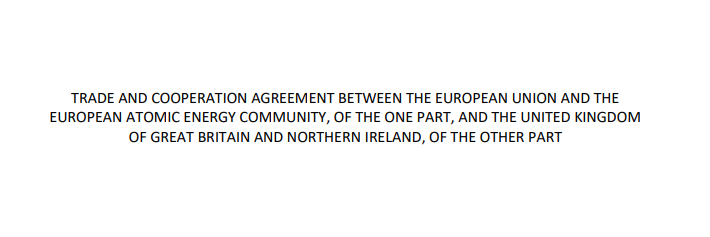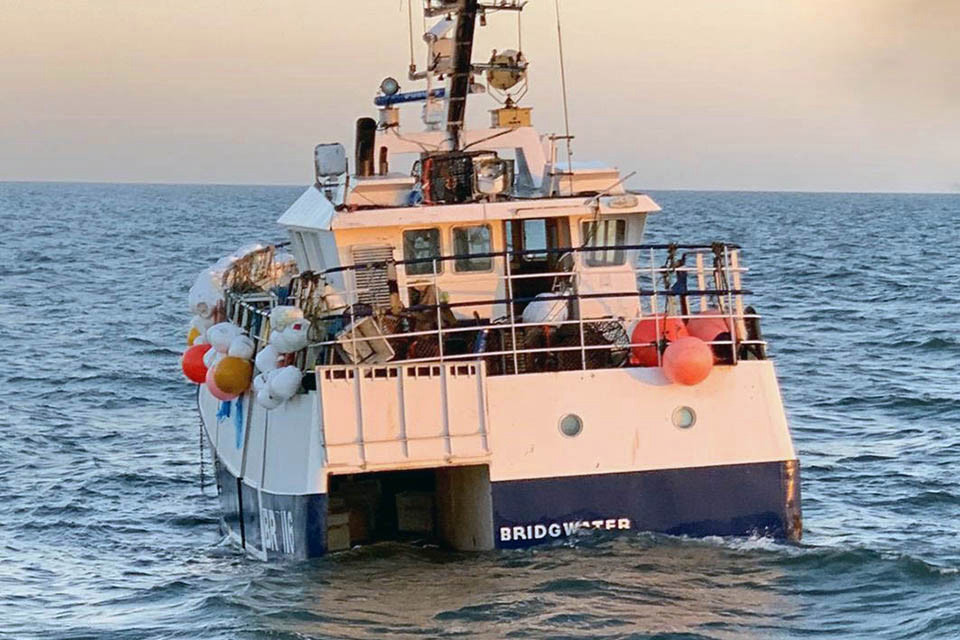THE draft Brexit trade deal has finally been published, giving us a full look at what the new rules will be on January 1.
The 2,146-page document will be voted on next week by MPs to seal Britain’s new future outside the EU.

Boris Johnson has hailed the draft Brexit trade deal as a success for Britain
So how will this deal impact Britain’s future?
Here’s an analysis on the full text of the deal.
FUTURE OF TRADE
The UK will leave the single market and the EU customs union after the transition period, but will have some access to it.
It goes further than the EU’s trade deal with Canada – which sees most, but not all tariffs scrapped and there are large quotas.
Boris Johnson said on Christmas Eve the deal is “first free trade agreement based on zero tariffs and zero quotas the EU has ever agreed”.
Trade with the EU accounts for 43 per cent of the UK’s exports and 51 per cent of its imports – meaning the deal is vital for both sides’ economies to carry on trading normally.
The UK is also able to now make their own deals with other countries outside the EU – like the £15billion trade deal with Japan.
The deal also includes services (including financial services and legal services).
This will provide UK service suppliers with the legal guarantees that they will not face barriers to trade when selling into the EU – and businesspeople can still travel.

The first page of the mammoth deal
LEVEL-PLAYING FIELD
The caveat to Britain securing the “zero tariffs and zero quotas” trade deal and striking its’ own deals outside the EU was to promise not to undercut competition on the global stage.
The EU demanded we stick to their standards so one side does not gain an unfair advantage over the other.
To avoid extending negotiations even further on issues such as worker rights and environmental regulations – both sides agreed to agree to maintain common standards.
This was key demand from the EU, but this doesn’t mean it was a concession for the UK.
The UK does not have to follow EU law whatsoever but they must maintain standards to keep competition fair.
In a win for the UK, this will be monitored through an independent competition agency, which will keep Britain’s affairs out of EU courts.
The UK will be allowed to develop their own system if there is evidence of unfair competition.
HOLIDAYS AND MIGRATION
Most of the rules for holidays and travel into the EU have already been resolved outside of the main Brexit discussions.
Tourists will be able to visit visa-free for 90 days, but will have to secure one after that.
Leaving the EU means the end to the free movement of people with the bloc.
It is being replaced by a points-based immigration system – giving the UK full control over who enters the country.
 Fishing proved to be a last minute spanner in the works
Fishing proved to be a last minute spanner in the works
FISHING
This was one of the thornier parts of negotiations, and the UK will have to wait until 2026 before they can catch more fish for themselves.
The current EU system means that waters are shared and Brits don’t have control over who can come in and fish.
Britain will take by 25 per cent of the current EU quota – which is worth £146million a year – but only after a transition period of five and a half years.
After this period, the UK will have control of about two-thirds of its catch.
From 2026, there will an yearly negotiation on how much access the EU will have.
It is a climb down from Mr Johnson’s initial demand of wanting 80 per cent of the EU quota back after three years.
And EU commissioner Ursula von der Leyen has said the has “strong tools to incentivise” the UK to continue offering access to the European fishing fleet after the transition period.
LAWS
British laws will be made solely by British Parliament and “the jurisdiction of the European Court of Justice will come to an end”.
For any disputes over the deal – an independent council made up of EU and UK representatives will oversee mediation.
HEALTHCARE
The EHIC will still be valid and British nationals will have access to free health care in Europe – which is reciprocated.
The agreement provides for the uprating of the UK state pension paid to pensioners who retire to the EU, the Government said.
NORTHERN IRELAND
It will have to follow single market rules to keep its border with Ireland open.
There are customs procedures for goods crossing the Irish Sea, because Northern Ireland will still have access to the EU’s customs union while also remaining in the UK one..
There will be some physical checks on plant and animal products, but it will not be at the border.
EDUCATION
The UK is leaving the Erasmus university exchange programme.
It will be replaced by a worldwide scheme named after Bletchley Park code breaker Alan Turing.
There is also no mutual recognition of professional qualifications such as doctors and engineers – but there is a framework for that to be revisited.
There is an agreement of lawyers’ recognition.
BREAK CLAUSE
And after all this, if it doesn’t work then the deal can be scrapped entirely.
The UK and the EU can both terminate the mammoth deal if they believe it is not working.
Both sides would then trade on Australian-style terms – aka No Deal.
Or the UK and EU could move to an arrangement where tariffs are in place on a limited number of goods – as is the case in the FTA which the EU has with Canada.
But either side must wait four years before making that decision.
Also, the entire deal can be reopened if the two sides are unable to resolve a serious dispute.
And individual parts of the agreement can be reopened.









